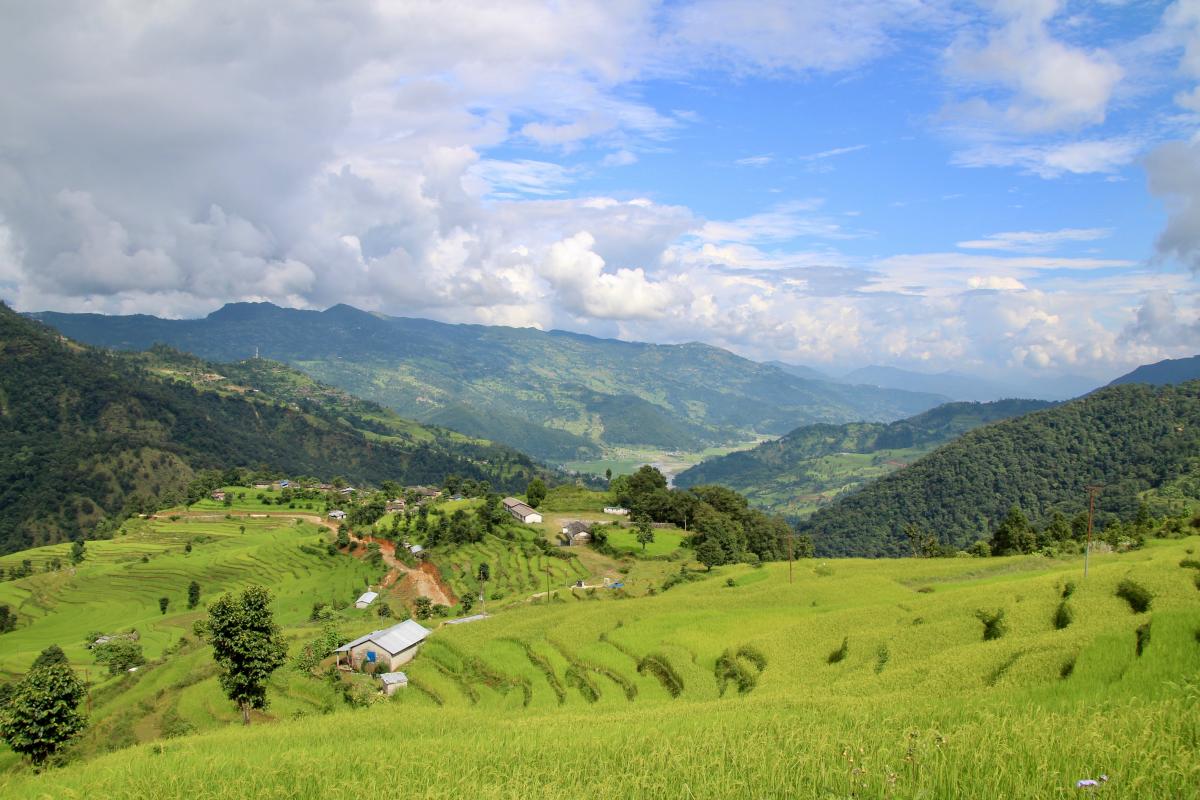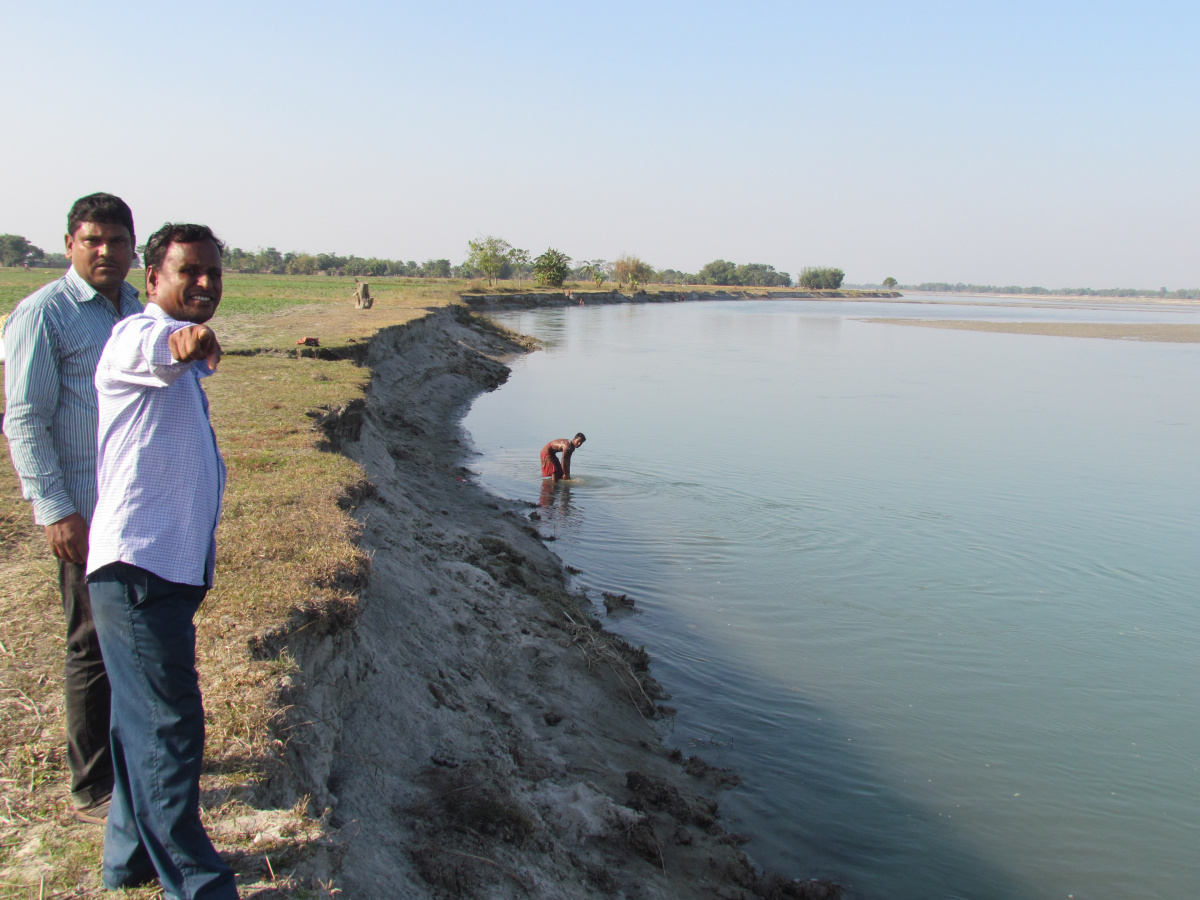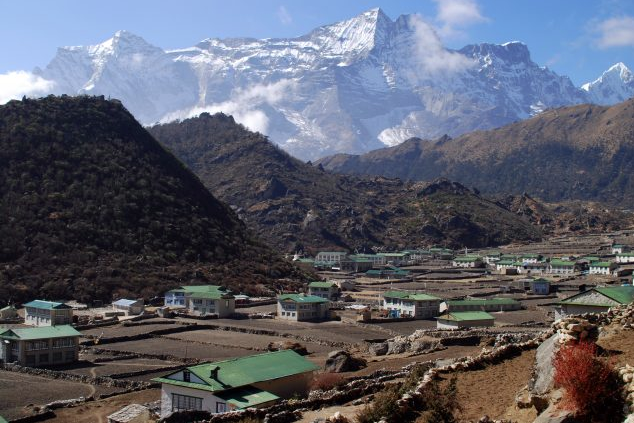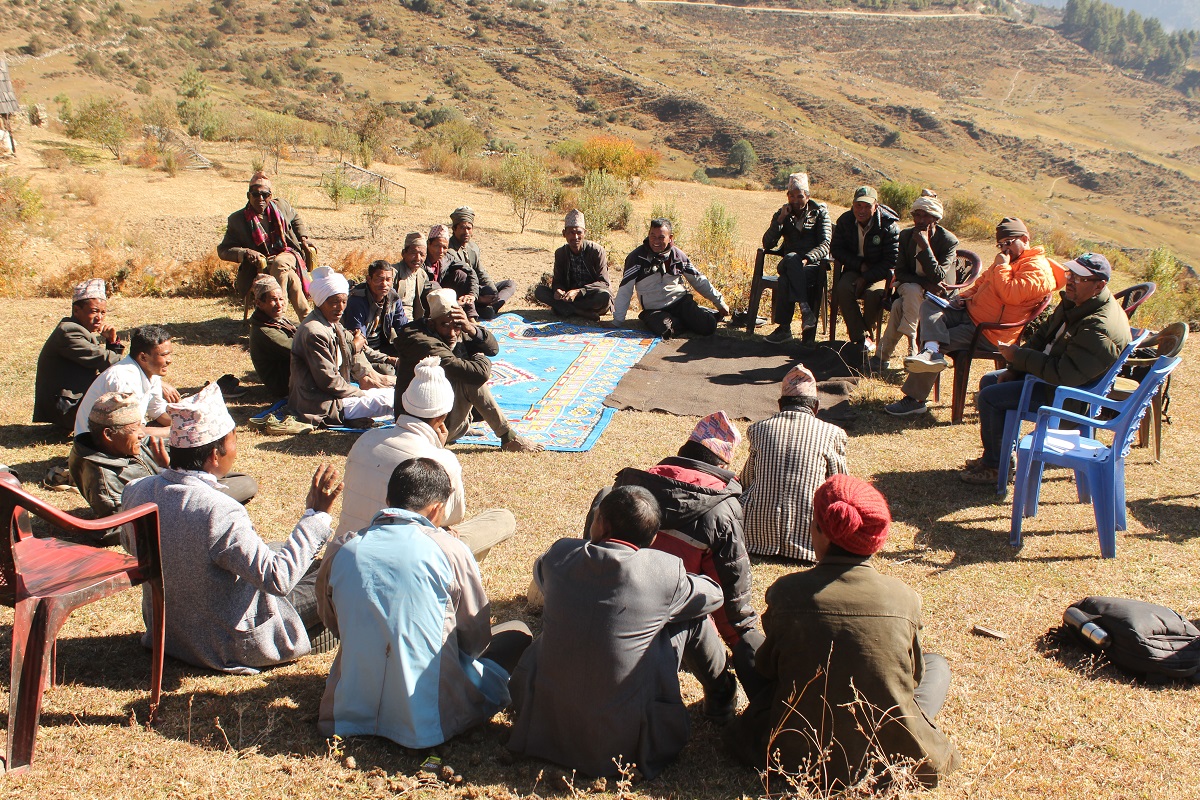EbA approaches for attracting country climate financing: Building linkages and mainstreaming EbA successes in Nepal
As climate change impacts intensify across the globe, the prevalence of nature-based solutions for climate adaptation, also known as Ecosystem-based Adaptation (EbA), has also been increasing, with various actors including governments, private sector, non-governmental organisations and community groups planning and implementing projects. EbA encompasses a broad set of approaches that incoporate the management of ecosystems and their services, as part of an integrated adaptation strategy , to enable vulnerable communities to adapt to climate change while increasing the resilience of ecosystems.

Photo: IUCN Nepal
As one of IUCN's flagship EbA projects, the Scaling Up Ecosystem-based Adaptation in Mountain Areas Programme was started in 2017 to expand EbA work in the Himalayas (Nepal), Mount Elgon (Uganda) and the Andes (Peru, EN | ES) and to support EbA projects being implemented in neighbouring Bhutan, Kenya and Colombia. Building on lessons from this project, “Improving Climate Resilience of Vulnerable Communities and Ecosystems in the Gandaki River Basin, Nepal” has been accepted for funding by the Green Climate Fund (GCF). This project is aimed at improving climate resilience of vulnerable communities and ecosystems in the Gandaki River Basin (GRB), expanding on the ecosystem management, biodiversity restoration and enhancement and natural resources management work being done in the region. These previous experiences in Nepal, and worldwide, have enabled IUCN to build significant capacity to address climate change adaptation including supporting the Government of Nepal in preparing its National Conservation Strategy, Wetland Strategy, National Pollution Control Strategy, and capacity development in the areas of climate change adaptation.
This GCF project was initiated in early 2017, with a final full proposal submitted in May 2020, and seeks to strengthen the climate resilience of ecosystems to reduce the impacts of landslides and floods. This initiative builds on IUCN’s work in Nepal including projects such as Scaling Up EbA in Mountain Ecosystems and Ecosystems Protecting Infrastructure and Communities (EPIC). Emphasis was placed on efficiency and effectiveness (i.e., Ministry of Forestry and Environment aim to mainstream the learning and experiences accumulated, drawing on local capacity and high potential of replication), potential for impact, increasing country ownership, enhancing sustainable development, among others.
This GCF project has over 1.9 million direct and indirect beneficiaries, over 800,000 tonnes of emissions avoided, and results for adaptation and resilience of ecosystem and ecosystem services; forests and land use; health, food and water security; infrastructure and built environment; and livelihoods of people and communities. Thus, this project is a prime example of the importance of building synergies and sharing knowledge across projects with the aim of scaling up and scaling out EbA interventions in Nepal. Crucially, this project will continue the mainstreaming of climate change adaptation via EbA solutions:
- to increase technical feasibility of EbA approaches,
- to improve upon understood financial and economic viability,
- to grow social acceptance of EbA response measures,
- to provide gender-specific responses and gender equity-based approaches to EbA,
- to highlight EbA as a policy to deliver climate change adaptation,
- to commit to a change in governance practices to river basin institutional involvement,
- to keep communities at the heart of solutions to adapt to climate change impacts, and more.
Key EbA-specific techniques and lessons learned from both Scaling Up EbA in Mountain Ecosystems and EPIC have been directly applied to this GCF project. This GCF project will construct natural infrastructure through promotion of low cost bioengineering technology, such as bamboo check dams, and plant grass and tree species in vulnerable locations throughout the GRB, which will help to restore agricultural lands damaged by landslides and floods. This GCF project will construct and operate irrigation systems and establish water-harvesting systems, including conservation ponds and water reservoirs, to improve water availability, water efficiency, and soil condition. Further, the project will apply bio-engineering techniques to prevent road-slides and soil erosion while maintaining accessibility to rural areas. To provide institutional support to develop appropriate governance mechanisms and to strengthen climate governance and institutional frameworks, this project includes community-based mechanisms for planning, restoration, monitoring and maintenance of the EbA approaches established.
The “Improving Climate Resilience of Vulnerable Communities and Ecosystems in the Gandaki River Basin, Nepal” project (FP131) is supported by IUCN Nepal and IUCN’s Global Water Programme. This project is funded by the Green Climate Fund (GCF).
Detailed project information can be read here.
For more information contact:
Anu Adhikari
Senior Program Officer, Climate Change, Gender & Social Inclusion
IUCN Nepal
Wendy Atieno
Programme Officer, Ecosystem-based Adaptation
IUCN Global Ecosystem Management Programme



